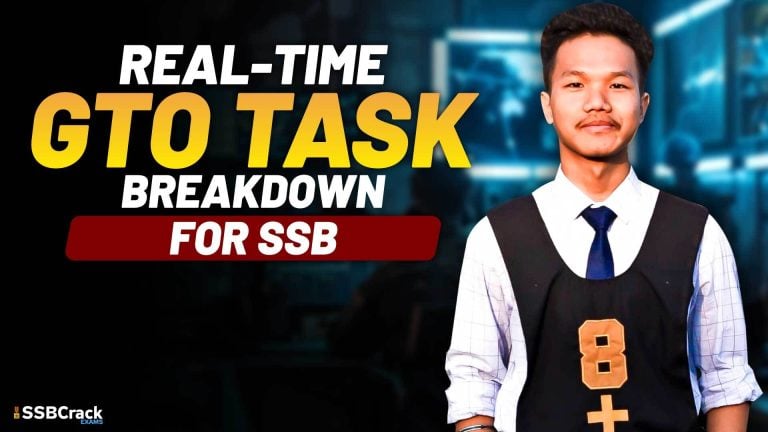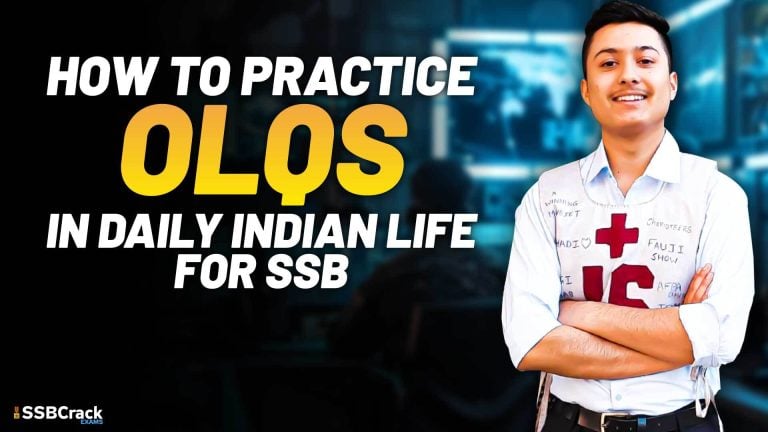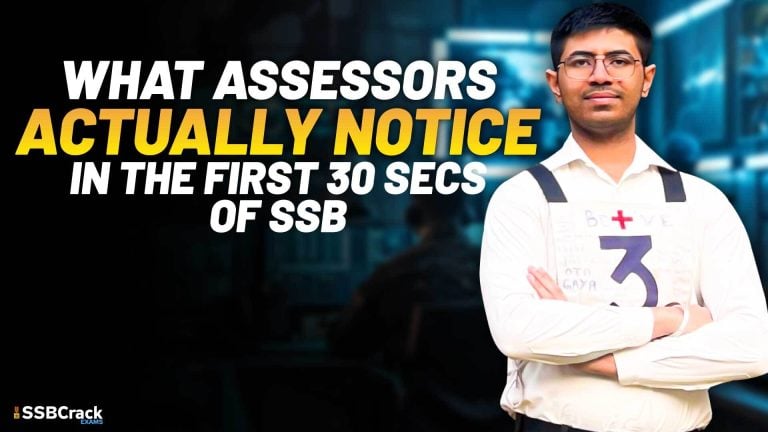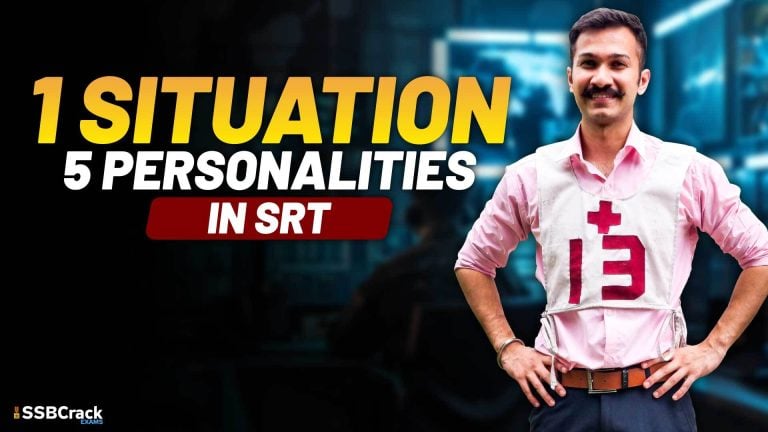Self-Confidence is one of the most essential Officer Like Qualities (OLQs) assessed during the SSB Interview. It reflects an aspirant’s belief in their abilities, decision-making, communication, and leadership potential. The ability to project calmness under pressure, handle responsibility with composure, and take initiative boldly stems from a strong foundation of self-confidence.
In the SSB environment—where candidates face unfamiliar tasks, group dynamics, and rapid decision-making—self-confidence is not optional, it is expected.
In this article, we’ll explore:
- What Self-Confidence means in the SSB context
- Where and how it is assessed during the interview process
- What aspirants should do to demonstrate this quality effectively
- Practical tasks to develop Self-Confidence at home, in college, or the workplace
What is Self-Confidence?
Self-Confidence is defined as the belief in one’s own capabilities to accomplish a task, express opinions, and take decisions independently without hesitation, fear, or excessive reliance on others.
In the SSB, self-confidence is not just about speaking assertively — it’s reflected in:
- How you behave in group settings
- How you approach problems under pressure
- How you respond when you’re unsure or challenged
- Whether you take responsibility or avoid it
A self-confident candidate:
- Projects calmness and control
- Is not overconfident or aggressive
- Is sure of their actions and decisions
- Accepts feedback or failure gracefully
- Carries a positive and assertive personality throughout the 5-day process
Where Is Self-Confidence Evaluated in SSB?
1. Personal Interview
- The most direct assessment of your self-confidence
- Your tone, body language, and clarity of thought matter as much as your answers
- Questions around your failures, weaknesses, and achievements test how secure and composed you are
2. Group Discussion (GD) & GPE
- Do you speak up or stay quiet?
- Are your opinions firm but respectful?
- Are you nervous or hesitant in expressing ideas?
3. GTO Outdoor Tasks (PGT, HGT, FGT, Command Task)
- How confidently do you take the lead or offer solutions?
- Do you give instructions to subordinates clearly and firmly in the Command Task?
- Are you steady and composed under physical and mental stress?
4. Psychological Tests
- TAT & SRT:
Is your protagonist confident and composed in difficult situations? - SDT (Self-Description Test):
Do you describe yourself and others’ perception of you as confident, trustworthy, and self-assured?
How Is Self-Confidence Evaluated?
The assessors look for:
- Consistency in words and actions
- Ability to handle unexpected situations calmly
- Assertiveness in expression without over-aggression
- Eye contact, voice tone, body posture, and emotional control
- Honesty in accepting mistakes without nervousness or defensiveness
How to Showcase Self-Confidence in SSB?
✔️ In the Interview:
- Maintain eye contact with the interviewer
- Sit straight, avoid fidgeting, and respond clearly
- Be honest — don’t bluff if you don’t know something
- Talk about your failures with learning-oriented language
✔️ In Group Discussion & GPE:
- Speak early but not forcefully
- Defend your ideas logically, not emotionally
- Listen actively and stay composed if interrupted
✔️ In GTO Tasks:
- Approach obstacles without hesitation
- Take charge confidently in the Command Task
- If your idea doesn’t work, suggest another without getting flustered
✔️ In Psychology Tests:
- TAT: Use a proactive, composed hero in your stories
- SRT: Respond with quick, calm, and logical solutions
- SDT: Write how others admire your confidence and reliability
How to Develop Self-Confidence in Daily Life
At Home
- Speak During Family Discussions
- Express your views on current events or family decisions
- 🔹 Boosts articulation and presence of mind
- Take Responsibility for Tasks
- Lead errands, fix problems at home, or mentor siblings
- 🔹 Improves self-assurance through action
At School/College/University
- Participate in Debates, Extempore or Stage Events
- Push yourself to speak in public, even if it’s uncomfortable initially
- 🔹 Builds stage presence and spontaneity
- Lead a Group Activity or Fest Team
- Take ownership of decisions and face challenges with accountability
- 🔹 Promotes practical leadership confidence
- Ask Questions in Class or Present Ideas
- Speaking up sharpens clarity and confidence
- 🔹 Reduces fear of judgment
At Workplace/Internship
- Volunteer for Presentations or Reports
- Take ownership of showcasing work in front of peers/superiors
- 🔹 Builds performance confidence under scrutiny
- Give and Receive Feedback Confidently
- Share suggestions without fear; accept criticism with grace
- 🔹 Enhances emotional and professional composure
- Stay Solution-Oriented in Meetings
- Speak constructively during discussions rather than just observing
- 🔹 Grows your assertive problem-solving skill
Final Thoughts
Self-Confidence is the fuel of leadership. In the SSB, it’s not about perfection — it’s about showing that you trust yourself enough to take initiative, accept mistakes, and stand your ground with humility. Your calmness in chaos, decisiveness under doubt, and assertiveness in expression all reflect your readiness to lead.
If you walk into the SSB believing that you have prepared well and trust yourself — you’ve already mastered one of the strongest OLQs.







